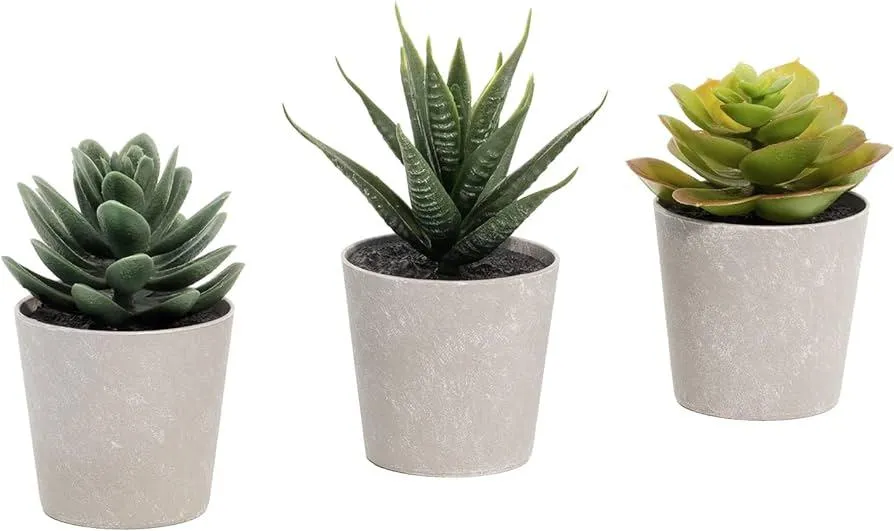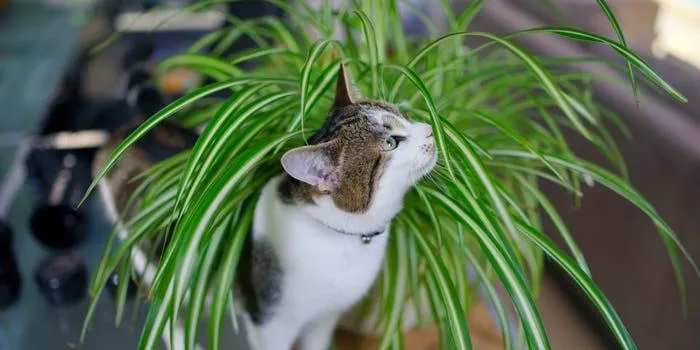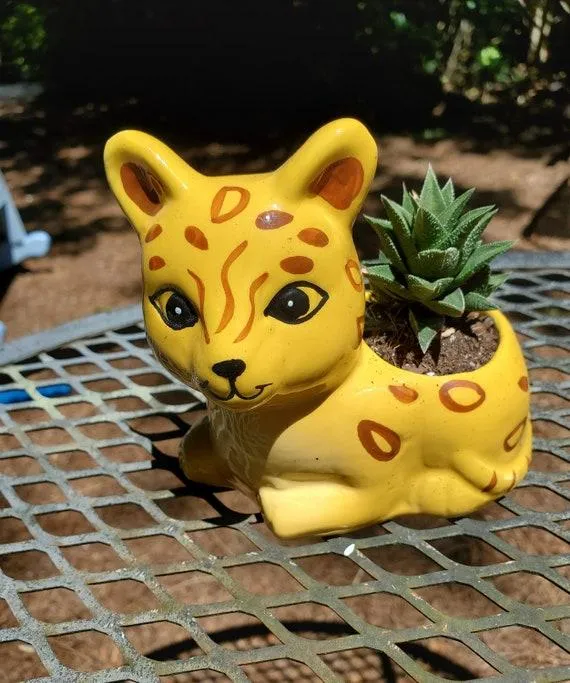Are Haworthia Plants Safe for Cats?
A curious cat owner may wonder if the unique Haworthia succulents in their home are safe for their feline friend. As any cat lover knows, cats have an affinity for chewing on houseplants. In this article, I’ll explore the safety of Haworthia for cats and provide answers to common questions owners have.
What Are Haworthia?
Haworthia, sometimes called zebra cactus or zebra plant, are succulent houseplants native to South Africa. With their plump leaves forming rosettes, Haworthia come in an array of shapes and patterns. Some varieties have vertically striped leaves like a zebra, while others have translucent windows or unique tubercles. They add an exotic flair to any indoor space.
Haworthia Toxicity for Cats
The good news is Haworthia are considered non-toxic to cats according to the ASPCA Animal Poison Control Center. From my experience as a plant lover and owner of chompy cats, Haworthia leaves are quite fibrous and sometimes difficult for cats to chew up entirely. The plump leaves also lack strong odors that may entice cats to nibble. While not deadly, a nibble could still cause an upset tummy for your curious feline friend.
- How can I cat-proof my Haworthia? Place the plant up high, out of paw’s reach on a tall shelf or hanging planter.
- Consider potting Haworthia in an closed container with small holes for drainage and air flow. The lidded pot creates a barrier to deter chewing.
- Spread citrus, lemon, or orange peels around the planter to deter cats with their strong smell. Cats dislike citrus scents.
Signs of Haworthia Ingestion in Cats
Even though Haworthia are non-toxic, cats may show symptoms if they ingest a large amount of leaves. Keep an eye out for two classic signs:
- Vomiting – Your cat may throw up shredded leaves or foam from an upset tummy. This is generally not an emergency unless accompanied by lethargy.
- Diarrhea – Loose, watery stool could mean the fibrous leaves aren’t agreeing with kitty’s digestive system. Monitor for dehydration.
As with any plant issue, contact your veterinarian right away if symptoms are severe or accompanied by loss of appetite, fever or excessive drooling. They can examine your cat and advise on next steps. Most mild cases will resolve on their own with rest and observation.

Haworthia Care Tips for a Toxic-Free Home
Aside from cat-proofing Haworthia, follow these care best practices to keep your whole home safe:
- Restrict access to any potentially toxic plants, keeping them behind closed doors or high shelves out of reach.
- Dust leaves regularly to remove any potential grit or dirt that may attract curious kitties to nibble.
- Stay up-to-date on the latest plant toxicities by consulting the ASPCA Poison Control database. Some lesser-known houseplants can cause issues.
- Consider a pet-friendly indoor garden featuring non-toxicsucculents, bromeliads and sansevierias instead of riskier options like lilies or sago palms.
With some prevention and control tactics in place, you can still enjoy the unique Haworthia plant without much concern for your feline friend. An occasional nibble likely won’t do much harm, but it’s always better to deter chewing to avoid any tummy upsets. By following the right care steps, you can create a lush indoor garden your whole family can safely enjoy.
A Few Real-Life Tales
Here are a couple stories from my own experience keeping indoor plants and cats over the years:
I once came home to find my curious kitten Chloe had snatched an entire Haworthia leaf from its pot! Luckily, after monitoring her, all she did was spit it out – those tough leaves must not have been too tasty. Another time though, my previous cat Tiger got into one of my terrariums and munched several Fittonia leaves before I caught him. That led to some upset tummy troubles for a few days until he passed everything. Now all my planters have secure lids!
Should Haworthia Be Kept Away from Cats?
While Haworthia are considered generally non-toxic to cats, it’s still best to take precautions to discourage chewing or ingesting large amounts of leaves. With some strategic cat-proofing of plants and supervision during play, you can keep Haworthia accessible for you to enjoy without much risk to your furry friends. Perhaps the biggest threat is an upset tummy if your cat really gobbles down a bunch of leaves.

The key is moderation – you can have indoor plants and curious cats, you just need to outsmart their nibbling habits! By following the right care steps and staying informed on potential issues, most owners find Haworthia present minimal risks in a cat-childproofed home. And their exotic look makes them a fun succulent to appreciate safely alongside your feline pal. Just keep tops on, place them up high, and use anti-chew deterrents for peace of mind.
Final Thoughts
In summary, while not 100% risk-free, the general consensus is Haworthia can coexist peacefully with cats when given the proper precautions. Their hard, fibrous leaves pose little threat of serious toxicity. And with secured planters or elevated pots, your cats shouldn’t gulp down massive quantities. But do check in with your vet if chewing ever does result in any vomiting, loose stool or other signs of tummy troubles.
Overall, by following best care practices and keeping plants inaccessible for chewing play, most loving cat owners find Haworthia add lovely exotic appeal to the home without causing major issues. With some effort to childproof, they can remain a fun feature for you to experience together. So go ahead and enjoy the eye-catching look of these unique succulents – just be sure curious cats can’t get more than a nibble!
Haworthia Care Tips for Cat Owners
| Haworthia Variety | Toxicity Level | Cat Safety |
|---|---|---|
| Haworthi fasciata | Low | Generally safe if kept out of reach or chewed on |
| Haworthia attenuata | Low | Generally safe if kept out of reach or chewed on |
| Haworthia cymbiformis | Low | Generally safe if kept out of reach or chewed on |
| Haworthia retusa | Low | Generally safe if kept out of reach or chewed on |
| Haworthia turgida | Low | Generally safe if kept out of reach or chewed on |
FAQ
-
Is it safe for my cat to play with a haworthia plant?
Basically, haworthia plants are not toxic to cats. However, cats may nibble on the leaves which could cause nausea or an upset tummy. So it’s best to supervise kitty when near haworthia plants.
-
Will a haworthia plant harm my cat if he eats it?
While haworthia is typically not poisonous to cats, eating large amounts could perhaps lead to gastrointestinal upset. The spiky leaves may also cause an irritated mouth. So it’s smarter to keep haworthia out of reach of curious kitties.

-
Can cats get sick from touching a haworthia plant?
For the most part, simply coming into contact with haworthia won’t endanger your furry friend. But cats tend to sniff and lick anything interesting. So it’s wise to watch that kitty doesn’t nibble more than a leaf or two which could potentially cause tummy troubles.
-
Is it okay to have a haworthia plant as a houseplant if you own a cat?
Pretty much yes – many veterinary sites say haworthia is non-toxic to cats. Even so, it’s best to plant haworthia high up out of pawed reach or get a cat-proof planter, just in case. That way curious kitties can’t chew more than they should. As long as kitty doesn’t gobble a whole plant, a cat and haworthia can live together.
-
What are the signs that a cat may have ingested part of a haworthia plant?
If swallowed, some indications kitty has munched haworthia could involve vomiting, diarrhea, loss of appetite. The cat may act unwell and lethargic. Watch for these things and call the vet if any effects seem to linger just to be safe. With only a nibble though, there may not be any symptoms at all.
-
Can haworthia leaves hurt a cat’s digestive system?
It appears haworthia leaves on their own aren’t usually dangerous when nibbled by cats. However, if kitty gobbles a bunch, the spiky foliage could potentially cause issues in the digestive tract or even cut the mouth. To reduce any risk, keep your succulent planted high and control kitty’s access.
-
What should I do if my cat eats part of a haworthia plant?
If kitty takes a bite of haworthia, don’t panic – for the most part, a little nibble likely won’t do harm. Nevertheless, you may want to call your vet, just to be safe. They can advise if any signs of sickness appear. Otherwise, you can expect kitty will probably be A-okay. But it’s also wise to cat-proof your succulent garden.

